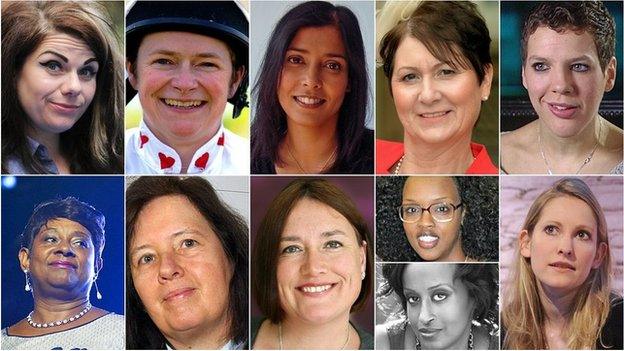Margaret Thatcher tops Woman's Hour Power List
- Published
Why Margaret Thatcher topped the 2016 Woman’s Hour Power List
Margaret Thatcher has topped a list of the women who have had the biggest impact on women's lives over the past 70 years.
Fictional heroine Bridget Jones and singer Beyonce were also named on the list, which was compiled by BBC Radio 4 Woman's Hour.
Seven people were picked for the Power List to mark the show's 70th birthday.
While Thatcher topped the list, the other women who appear on it were not ranked in any order.
Feminist academic Germaine Greer also made the cut, as did Helen Brook, who set up the Brook Advisory Centres in 1964 offering contraceptive advice to unmarried women.
The other names listed were Barbara Castle, the Labour MP who brought in the Equal Pay Act in 1970, and Jayaben Desai, who campaigned against low pay and poor conditions for women workers.
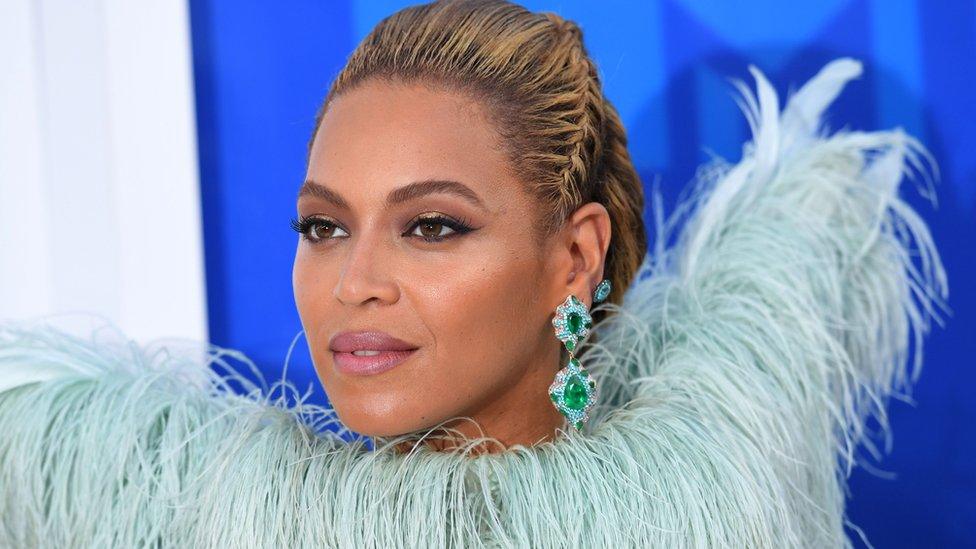
Beyonce has 'put out quite a positive feminist message, right from the start', the judges said
BBC 5 live presenter Emma Barnett, who chaired the judges, said Bridget Jones had been a divisive choice for the panel.
But she said the list was about who has "actually had impact in real women's lives", adding that "impact doesn't have to be good, bad, serious or funny".
The character "gave permission for our own imperfections... we still have huge image issues in this country", Barnett explained.
Bridget Jones creator Helen Fielding said it was a "tremendous honour for Bridget and, of course, for me".
She added: "I hope it doesn't mean everyone's going to binge drink and eat Milk Tray late at night.
"I also hope there was something rather more profound going on, there's something in Bridget's nature which is very British which is ultimately quite decent, quite kind, quite resilient, not judgemental."
Bridget Jones profile
She said Bridget, who first appeared in a newspaper column in 1995 and went on to feature in hit books and films, had caught the zeitgeist and that "women were fed up of being presented in movies and in fiction as not being able to speak for themselves".
But the decision to include Jones was not welcomed by everyone.
The Telegraph, external questioned the absence of the Queen, while the Daily Mail, external said Beyonce and Jones should not be considered to "have the same calibre" of Thatcher.
Woman's Hour presenter Jane Garvey tweeted, external: "I did not have a vote, nor did [co-presenter Jenni Murray]. Our panel of judges decided. Would I have picked Bridget Jones? No."
Comedian David Baddiel said, external: The fact that one of the women on the Women's Hour Power List is *not real* suggests perhaps that that old glass ceiling remains reinforced."
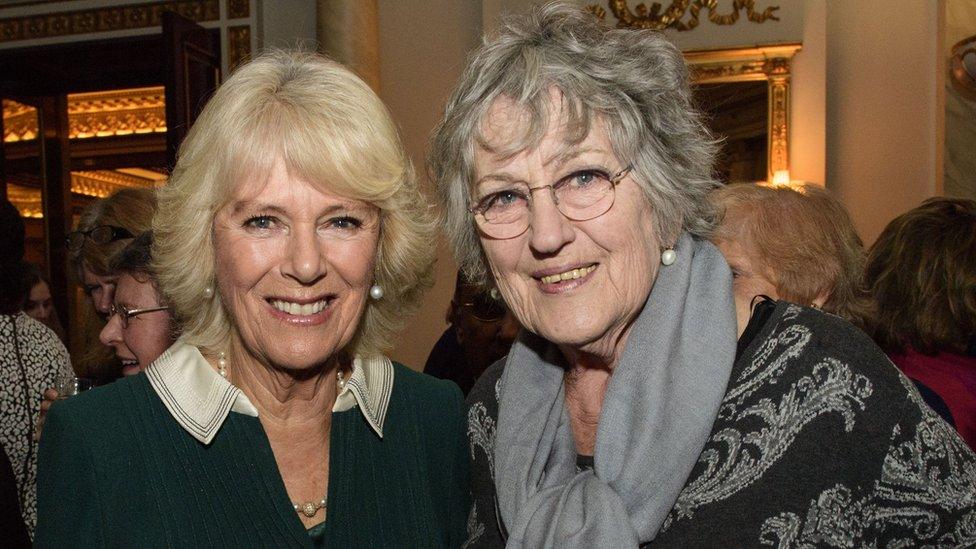
The Duchess of Cornwall and Germaine Greer attended a reception to celebrate the list

The 2016 Woman's Hour Power List
Winner: Margaret Thatcher - First female British prime minister from 1979-1990
Helen Brook - Set up Brook Advisory Centres in 1964 offering contraceptive advice to unmarried women
Barbara Castle - Labour MP for Blackburn (1945-1979) and brought in the Equal Pay Act in 1970
Germaine Greer - Australian writer, recognised as one of the major voices of the feminist movement
Jayaben Desai - Prominent leader of the strikers in the Grunwick dispute in London in 1976
Bridget Jones - The protagonist of Bridget Jones's Diary, written by Helen Fielding
Beyonce - US singer and songwriter who emerged as part of Destiny's Child before a hit solo career

Murray and Garvey hosted a special edition of the programme on Wednesday morning to celebrate the chosen women.
It was recorded at Buckingham Palace at a reception attended by The Duchess of Cornwall.
In deciding on the final seven names, the judges considered a woman's body of work or her role as a catalyst for change over the past 70 years, as well as those having an impact today.
Sophie Walker, leader of the Women's Equality Party, said: "It is interesting that all but two of these women are 'second-wavers'.
"We are excited about the next generation of activists, thinkers and writers fighting for social and political justice in the 21st Century and look forward to seeing them on future power lists."
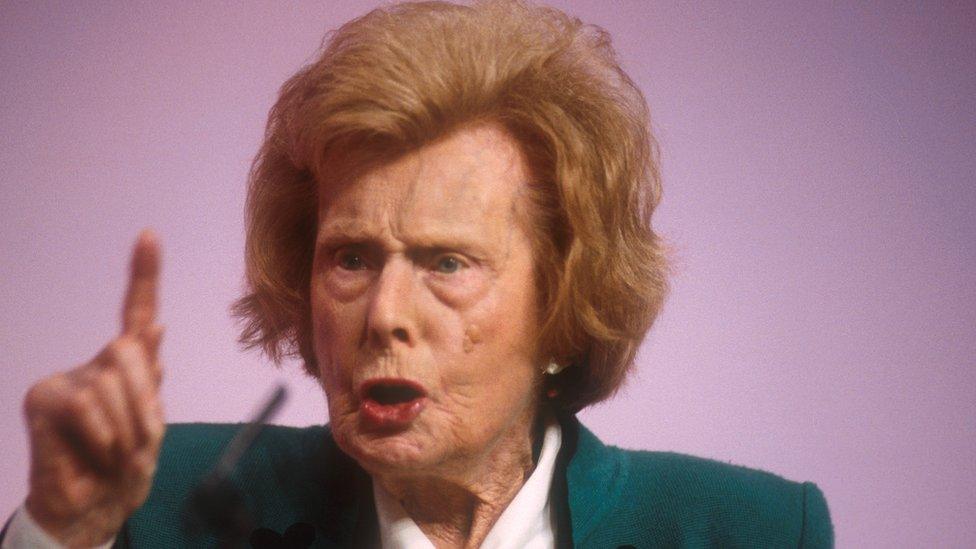
Barbara Castle brought in child benefit as a payment to mothers rather than through the father's pay packet
Woman's Hour publishes a Power List every year, with a different theme each time. This was the first year where dead women or those from outside the UK were considered.
In deciding on the final seven names, the judges "considered a woman's body of work or her role as a catalyst for change over the past 70 years, as well as those having an impact today", a representative for the programme said.
Barnett said: "The list takes in a range of experiences across a range of ages. We hope the list inspires, educates and crucially shines a light on the work of some women who history may already be starting to forget."
Barnett was joined on the panel by business leader and Apprentice star Baroness Brady, former Labour adviser and commentator Ayesha Hazarika, award-winning screenwriter Abi Morgan, former Woman's Hour editor Jill Burridge and networking expert and author Julia Hobsbawm.
Follow us on Facebook, external, on Twitter @BBCNewsEnts, external, or on Instagram at bbcnewsents, external. If you have a story suggestion email entertainment.news@bbc.co.uk, external.
- Published1 July 2015
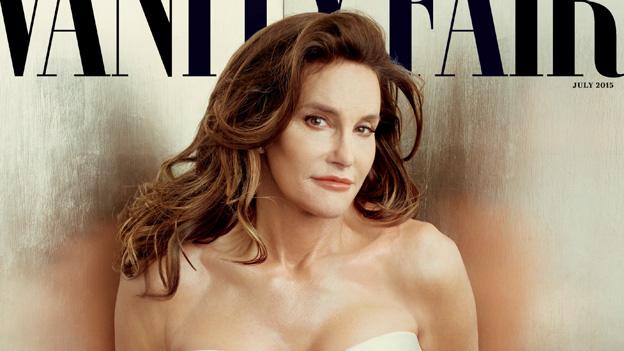
- Published1 July 2015
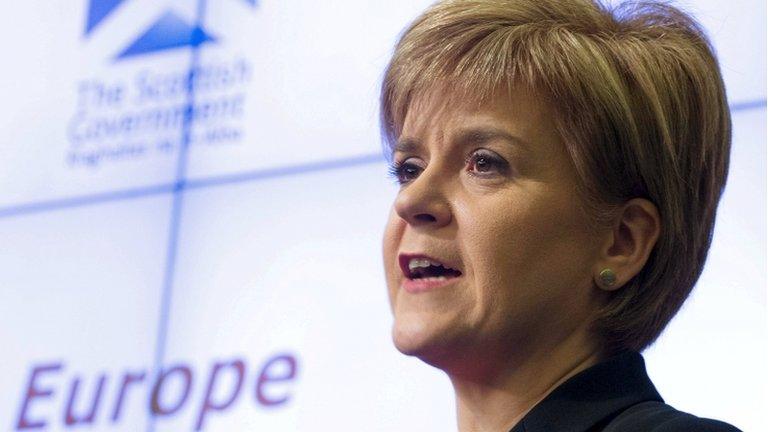
- Published9 April 2014
